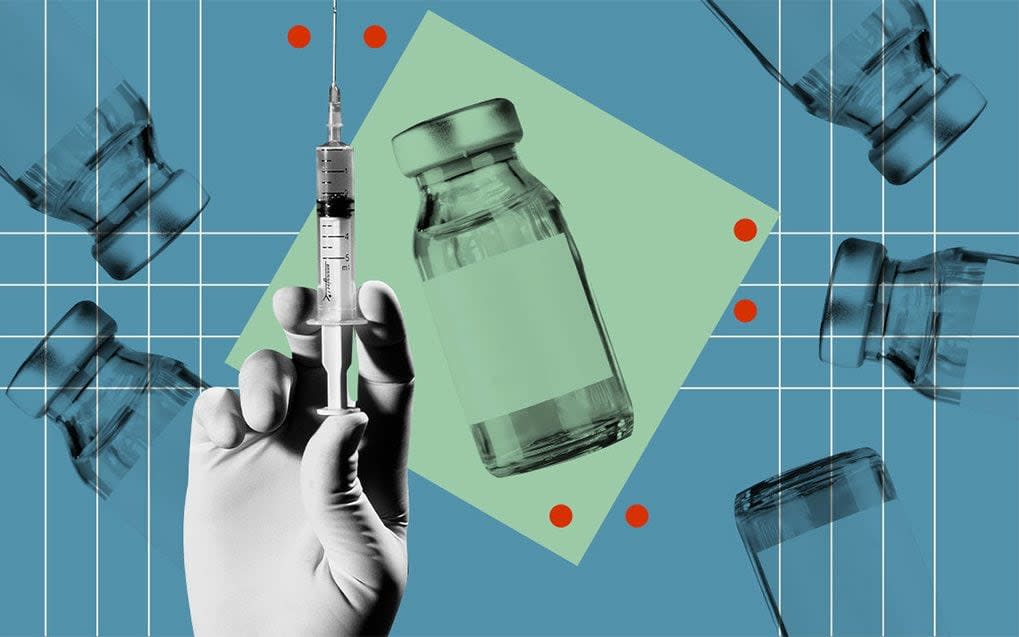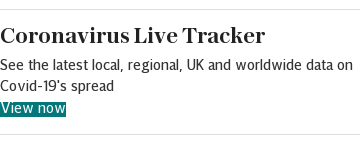The first drugs targeted to fight Covid-19 near launch – but are they too expensive to use widely?


Scientists awaiting the results of the first drugs specifically designed to target Covid-19 are quietly optimistic that the preliminary data, set to be revealed next month, will herald a major breakthrough.
If confirmed as safe and effective the drugs, known as monoclonal antibodies, could have a dramatic impact on efforts to halt the pandemic and reduce the death toll, say experts.
Monoclonal antibodies are already used to treat conditions including cancer, arthritis and Ebola. They are laboratory produced antibodies specific to the disease in question and delivered via injection. But there's a major drawback: they are expensive to manufacture and distribute.
For Covid-19, scientists hope the treatment will prevent the virus from reproducing inside human cells and could be used in the early stages of disease, to prevent an infection from worsening and turning Covid-19 into something akin to a bad cold.
This contrasts to the two drugs so far proven effective against Covid-19, the antiviral remdesivir and the steroid dexamethasone, which can only be used to treat severely ill patients.
The first trial results for monoclonal antibody therapies are expected to be published next month, but already experts are optimistic.
“We do expect them to be effective, based both on previous experience with other pandemic-type viruses, but also preclinically in the lab with Covid-19,” said Dr Nick Cammack, who is leading the search for coronavirus treatments at the UK biomedical research charity Wellcome. “We expect them to be able to kill off the virus.”
Dr Cammack added that monoclonal antibodies may also be used prophylactically, meaning they could even be given to those exposed to the virus to prevent them developing symptoms.
He said he could “envisage a scenario” in which contact tracers offer the drugs to those who have been in contact with an infected individual as a fail safe - for instance when tracing a cluster of cases linked to a pub or restaurant.
“It’s likely [immunity] will last with one injection a couple of weeks, and that might be good enough to make sure that they don't succumb to the infection,” he said. “There are lots of great possibilities.”
Science in this field has exploded in recent years, with monoclonal antibody development one of the fastest-growing areas in biomedical research. Roughly 70 different monoclonal therapies are currently being developed to treat Covid-19 and several trials are underway - including four from large pharmaceutical companies in clinical trials.
The American biotech company Regeneron is set to reveal the first data on monoclonal antibodies before the end of September - the preliminary results come from a phase three trial involving 2,000 patients. Another study from Eli Lily, which aims to enrol 1,000 people with Covid-19, is expected to publish data in the autumn.

Unlike vaccines, where fewer than 10 per cent of candidates make it through the development process, Dr Cammack is confident that the majority of monoclonal antibodies will prove successful.
There are some safety concerns - for instance researchers are watching out for signs of “antibody-dependent enhancement” during trials, where antibodies actually help the virus to enter human cells and reproduce.
But assuming the drugs are proved safe, the most substantive barriers to overcome will be logistical.
Monoclonal antibodies are expensive to produce, complicated to manufacture and because they are administered via an injection, the therapy may be difficult to use in regions with limited healthcare infrastructure.
According to a report published this week by two leading public-health charities - the International AIDS Vaccine Initiative (IAVI) and Wellcome - these issues could curtail the treatment’s potential.
“These are pretty revolutionary products that have real potential to save lives and alter the pandemic’s trajectory,” said Dr Lindsay Keir, innovations partner at Wellcome. “But historically we haven’t thought early enough about how to lower development costs and how they would actually be used in clinics.”
Despite a global need for the monoclonal antibodies that are already on the market for other diseases, currently 80 per cent of therapies sales in the United States, Europe and Canada - which makes up around 15 per cent of the global population.
This is partly because they are expensive - in the US they tend to cost between $15,000 and $200,000 per year of treatment.
“This is obviously prohibitively expensive for many people around the world,” said Dr Keir. “But there are examples where antibodies are much cheaper - for example the rabies antibody that has been developed by the Serum Institute of India and Zydus Cadila costs between about $20 and $40.
“So it shows you that there is a massive spectrum and there is potential to reduce cost,” she said, adding that there is some mystery over the pricing of antibody treatments at the moment.
“Manufacturing is more specialised and can be expensive, but there are other issues - a lot of antibodies are made for high income markets and so there are fewer incentives to reduce cost. How big the market size of patients is also affects price, and it can also come down to how countries negotiate prices,” Dr Keir added.
But manufacturing capacity will also be a major issue - while there have been some attempts, including by the Gates Foundation, to ramp up capacity in advance of an approved monoclonal antibody treatment, there has been nothing on the scale of vaccine manufacturing capability.
Dr Cammack said that both are crucial - as neither a vaccine nor a therapeutic alone will end the pandemic. But even in the UK, he is only aware of limited antibody manufacturing capability.
But Dr Keir is optimistic that many of these issues will be tackled and said the IAVI and Wellcome report sets out a range of recommendations that she hopes governments, pharmaceutical companies and non governmental organisations will address.
She added that, if challenges are overcome, there is a “huge opportunity” to make monoclonal antibody treatments for other diseases more accessible across the globe.
Protect yourself and your family by learning more about Global Health Security

 Yahoo News
Yahoo News 
